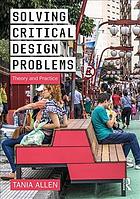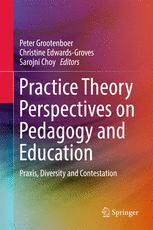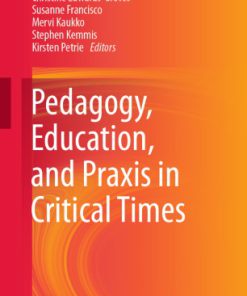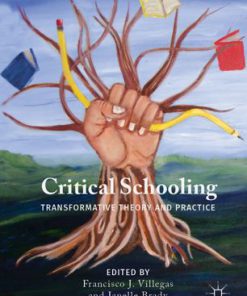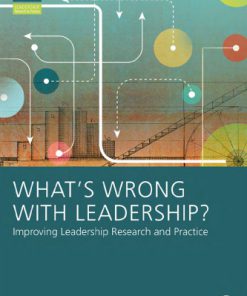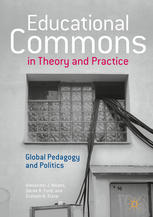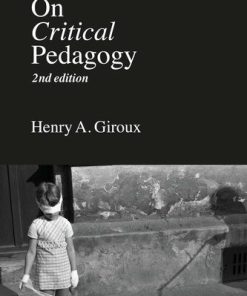Demystifying Critical Reflection Improving Pedagogy and Practice with Legitimation Code Theory 1st Edition by Namala Tilakaratna 81000966831 9781000966831
$50.00 Original price was: $50.00.$25.00Current price is: $25.00.
Demystifying Critical Reflection Improving Pedagogy and Practice with Legitimation Code Theory 1st Edition by Namala Tilakaratna – Ebook PDF Instant Download/DeliveryISBN: 81000966831, 9781000966831
Full download Demystifying Critical Reflection Improving Pedagogy and Practice with Legitimation Code Theory 1st Edition after payment.
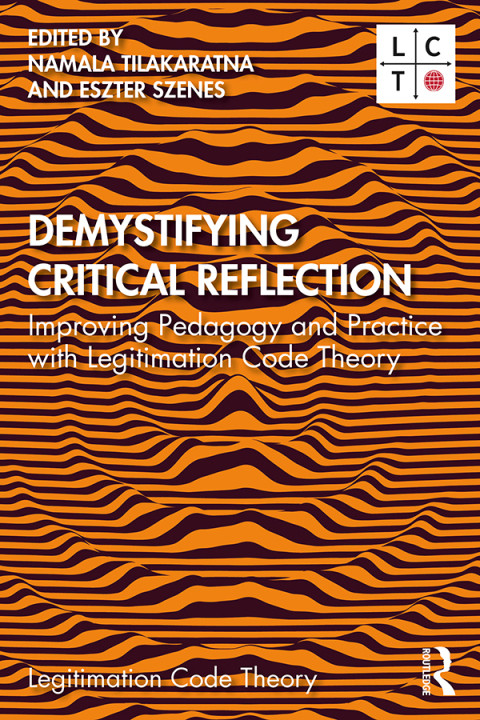
Product details:
ISBN-10 : 81000966831
ISBN-13 : 9781000966831
Author: Namala Tilakaratna
Drawing on Legitimation Code Theory (LCT), this volume reveals the knowledge practices and language of critical reflection in a range of different subjects, making clear how it can be taught and learned. Critical thinking is widely held to be a key attribute required for successfully living, learning and earning in modern societies. Universities now list critical thinking as a key graduate quality and use ‘critical reflection’ as a way of teaching students how to become reflective and ethical professionals. Yet, what ‘critical reflection’ actually involves remains vague in research, teaching practice, and assessment. Studies draw on LCT, a fast-growing framework for revealing the knowledge practices that enable educational success and the individual chapters focus on a diverse range of contexts across the disciplinary map, including education, science, arts, sociology and nursing. The book further connects research and practice by presenting in-depth analyses of critical reflection and providing practical insights into how LCT can be used to design pedagogic interventions. The book offers a rich resource for both scholars and teachers who want to demystify critical reflection and prepare university students for the modern workplace.
Demystifying Critical Reflection Improving Pedagogy and Practice with Legitimation Code Theory 1st table of contents:
1. Seeing knowledge and knowers in critical reflection: Legitimation Code Theory
Introduction
Critical reflection research and pedagogy
Introducing Legitimation Code Theory
Specialization
Semantics
Cosmologies
Introducing Systemic Functional Linguistics
Demystifying critical reflection
References
PART I Uncovering critical reflection
2. Developing disciplinary values: Interdisciplinary approaches to investigating critical reflection writing in undergraduate nursing
Introduction
Competence in nursing pedagogy and professional practice
Analytical framework: Axiological cosmology
Reflective writing task and rubric description
Analysis and findings
Maintaining safety
Effective communication
Implications for teaching critical reflection
References
3. ‘I comply but deeply resent being asked to do so’: Ethical considerations of assessing students’ reflective writing
Introduction
Literature review: The construction of critical reflection assignments
Theoretical foundations: Axiological clusters and constellations
The dataset and the reflective assignment tasks
Deficit discourses in reflective writing: Stereotyping the ‘Other’, negative self-talk, and a focus on failure
Deficit discourses: Clusterboosting Australian values and clusterfucking ‘foreign’ values
Deficit discourses: Negative self-talk and a focus on failure
It’s critical: Problematizing the assessment of critical reflection
Concluding remarks
References
4. Critical reflection and critical social work: Describing disciplinary values and knowledge
Introduction
Reviewing the literature: Critical reflection in social work
The context of critical reflection and critical traditions in social work
Object and method of analysis
Analytic forms: Specialization
Findings
Critical knowledges: Theories and processes in critical reflection
Reflective embodiments: Dispositions and values in critical reflection
Critical reflection in critical social work: Theory in service of practice
Conclusion
References
PART II Supporting critical reflection in pedagogy
5. Enacting reflective practice in sport and exercise sciences: Pedagogic and integrative perspectives
Introduction
Educational context and pedagogic research perspectives
Building a pedagogic toolkit with Legitimation Code Theory
Making the concepts practical for teaching
The unfolding of pedagogic practice: Messages for students
Message 1: Critical reflection involves mindful shifts between experience, generalizations, and theory
Message 2: Theory can inform reflective action and transform understanding
Message 3: Avoid ‘mid-level flatlines’
Message 4: Move from chronological to thematic organization
Message 5: See the waves in other academic and employability practices
Summary thoughts and conclusion
References
6. Consolidating performance: Reflection in the service of developing presentation skills
Introduction
From reflection to presentations
Context of pedagogy
Data collection and selection
Methodological framework: From Specialization to translation
Specialization and the 4-K model
A translation device for 4-K model in presentations
Reflecting on reflective self-assessments
Why I introduced reflective self-assessments
How I designed reflective self-assessments
How students responded to reflective self-assessments and what that reveals
Conclusion
References
7. Teaching critical reflection in education diploma pathways: A pedagogic intervention
Introduction
Critical reflection in initial teacher education
Legitimation Code Theory: Semantic gravity
The context of the intervention
Making critical reflection visible in diplomas
Relating task prompts to model texts
Predicting semantic structures in task prompts
Making knowledge practices accessible, teachable, and learnable
Selection
Sequencing
Pacing
Evaluations of the project
Conclusion
References
8. Writing blog critiques in teacher education: Teaching students what is valued with semantic gravity and genre theory
Introduction
Context
Methodology
LCT – semantic gravity
SFL – genre analysis
Findings and discussion
Findings and pedagogic insights from analysis with the clausing tool
Using findings from analysis in teaching
Findings and pedagogic insights from analysis with the system of engagement
Summary of complementary findings contributing to the creation of model texts
Conclusion
References
9. Knowledge-powered reflection in teacher education: Semantic waves and genre-based writing practice of museum experiences
Introduction
Reflective practice in teacher education
Three aspects of reflection in Hungarian teacher education
Research question
Context
Methodology
Genre pedagogy
LCT: Semantic gravity and semantic waves
Dialogues and exhibition visits to support knowledge-building
Findings and discussion
Discussion of pedagogical implications
Pedagogical strategy to develop reflective practice 1: The genre pathway
Pedagogical strategy to develop reflective practice 2: Using the semantic wave as a pedagogical tool
Pedagogical strategy to develop reflective practice 3: Working with experiences
Conclusion
References
PART III Cultivating critically reflective students
10. Framing the looking glass: Reflecting constellations of listening for inclusion
Introduction
Literature: Framing values
Course context and case study
Theoretical and methodological framework
Constellations of listening
Stimulus text: ‘How to be a better listener’ by Shelagh Rogers
Student reflective text: Portraying listening as a gift
Cultivating inclusive listeners
Conclusion
References
11. Football yadayada: Learning how to critically reflect about sport as a social field
Introduction
The study
Legitimation Code Theory: Semantic gravity
Findings
Stage 1: Entry points and upshifts to teach SG— meanings related to the grand theories
Stage 2: Entry points and downshifts to demonstrate how context-dependent (SG+) meanings might be explored using the grand theories
Stage 3: Semantic gravity ranges for developing students’ theoretical frameworks for an IMRD
Stage 4: Using semantic ranges to produce an effective theoretical framework for an Introduction-Method-Research-Discussion paper (IMRD) in a model academic text
Stage 5: Students produce their own theoretical framework accompanied with a semantic gravity profile representing it
Conclusion
References
12. Understanding students’ reflective engagement with academic texts
Introduction
Literature review
Methodology
The context
The task and expectations: Developing a cultivated gaze
Analytical frameworks
Findings
Low-achieving assignments: Criticism as reflective response
High-achieving assignments: Critical and intellectual engagement as reflective response
Discussion and implications
References
People also search for Demystifying Critical Reflection Improving Pedagogy and Practice with Legitimation Code Theory 1st:
demystifying writing transforming education
demystifying discussion
critically reflective practitioner in education
demystifying transition assessment
reflection is a way to opportunities and criticism
Tags: Demystifying Critical, Reflection, Improving Pedagogy, Practice, Legitimation Code Theory, Namala Tilakaratna
You may also like…
Linguistics - Linguistics
Engineering
Solving critical design problems theory and practice First Edition Allen 0429677413 9780429677410
Education Studies & Teaching
Education Studies & Teaching - School Education & Teaching
Pedagogy Education and Praxis in Critical Times Kathleen Mahon
Education Studies & Teaching
Business & Economics - Management & Leadership
What s Wrong with Leadership Improving Leadership Research and Practice Ronald E Riggio
Education Studies & Teaching
Education Studies & Teaching - School Education & Teaching
On Critical Pedagogy 2nd Edition by Henry A Giroux ISBN 1350144983 978-1350144989





